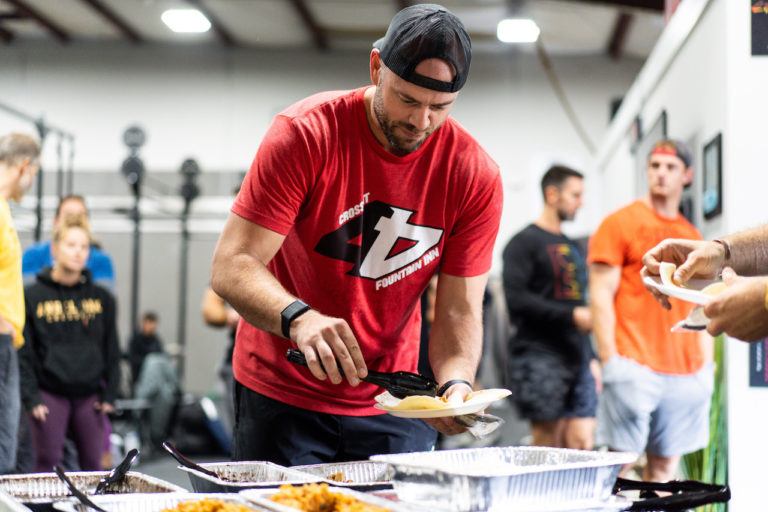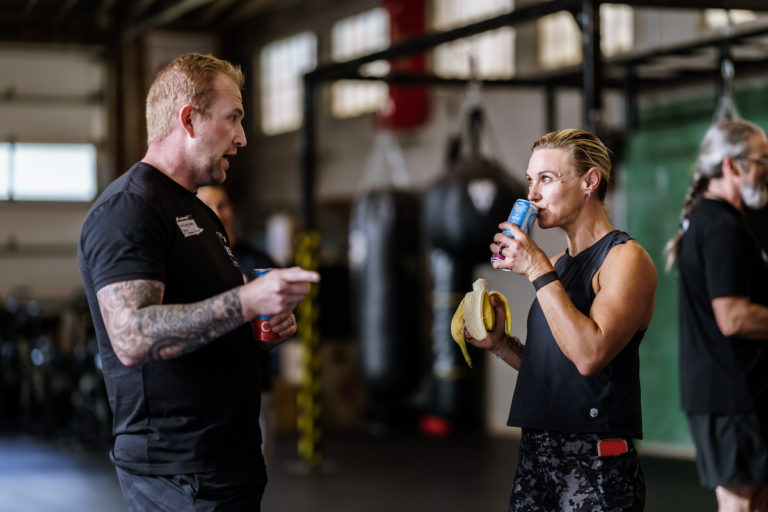What you eat matters.
“Nutrition is the foundation of the pyramid,” as is written in CrossFit’s “Theoretical Hierarchy of Development.”
“The quality and constituent elements of an athlete’s diet influence metabolism and therefore the molecular foundations of muscle, bone, and the nervous system. For this reason, any training system that does not consider and duly correct an athlete’s diet will be suboptimal.”
So what would happen, trainers, if you couldn’t talk nutrition with your clients — particularly with those who need it most?

Any training system that does not consider and duly correct an athlete’s diet will be suboptimal.
Such restriction is currently up for consideration in Nebraska with legislative bill 1249, introduced on Jan. 20, 2022.
“The Legislature finds that the unregulated practice of medical nutrition therapy can clearly harm or endanger the health, safety, and welfare of the public,” the bill reads.
The new bill proposes changes to Nebraska’s Medical Nutrition Therapy Practice Act, which dictates who can provide such therapy. Among the changes are additions to terminology, including the definition of medical nutrition therapy as “the provision of nutrition care services as part of the treatment or management of a disease or medical condition, including, but not limited to … medical weight control.”
At first glance, that doesn’t sound like a concern for CrossFit trainers and affiliate owners. You’re coaches, not doctors, right?
The problem is language: the terms used, how they’re defined, and how they could be interpreted by a licensing board or in a court of law.
“This bill would, in effect, require a license for trainers to meaningfully talk about nutrition with many of their clients,” said Brett Ewer, Head of Government Relations for CrossFit, LLC.
A crucial part of Ewer’s role is monitoring for policy developments that could affect CrossFit affiliates and trainers — and pushing back when those developments threaten gyms, trainers, and their work.
Bill 1249 defines medical weight control as “medical nutrition therapy for the purpose of reducing, maintaining, or gaining weight.” Conversely, it defines nonmedical weight control as “nutrition-care services for the purpose of reducing, maintaining, or gaining weight that do not constitute the treatment of a disease or a medical condition.”
The problem? Obesity has been recognized by the American Medical Association, the Centers for Disease Control and Prevention, and other associations as a disease. That means that while telling healthy clients to eat meat, vegetables, nuts and seeds, some fruit, little starch, and no sugar would be permissible under bill 1249, it wouldn’t be if you told an obese client to do the same to reverse their obesity.
“It’s tricky because it’s not considered medical until you apply it to certain populations,” Ewer said, adding that because the law concerns disease management, it would leave trainers at risk for litigation if passed as written.

Under proposed Nebraskan law, fitness trainers would not be permitted to discuss nutrition with obese clients to help them reverse their obesity.
If the law were to pass, CrossFit trainers in Nebraska could not tell an obese client so much as to curb their sugar intake to reverse their obesity without written approval or consultation from a registered dietitian, certified nutritionist, or licensed healthcare practitioner — or a license of their own.
“You would effectively have to change your profession to be able to share information that is life-saving and life-changing,” Ewer continued.
That’s why CrossFit is stepping in.
“Nebraska’s CrossFit gyms play an integral role in decreasing healthcare costs while improving the health and quality of life of thousands of Nebraskans,” Ewer wrote to the state’s Health and Human Services Committee in a statement opposing the legislation.
“If enacted, LB 1249 would radically expand the current definition of (medical nutrition therapy) such that it would encompass speech and activity engaged in by CrossFit trainers and their clients, forbidding them from continuing their practice,” he wrote. “This could not come at a worse time. … Nebraska has suffered immensely from the toll of obesity: 34 percent of adults in Nebraska are obese, and the CDC estimates that 30 percent of adult COVID-19 hospitalizations were attributed to obesity. Enactment of this novel and expansive regulatory regime would be yet another burden placed on those who are fighting every day to improve Nebraskans’ health.”

This isn’t the first time CrossFit has lobbied against legislation threatening to handicap affiliates and trainers. A similar 2018 bill in New York state has been held for further discussion thanks in part to CrossFit’s input. And in 2020, CrossFit was integral in rolling back Florida’s nutrition speech licensing law, which was one of the most restrictive in the United States. CrossFit has also long fought and prevented attempts to implement licensure of fitness training across the United States.
No one’s saying CrossFit trainers should be placing feeding tubes or prescribing intravenous nutrition.
“What we argue is that trainers should reasonably be able to talk about nutrition,” Ewer said. “They should be able to speak with clients about issues that respond to social reinforcement rather than have that issue get routed strictly through the medical system — because, frankly, certain professions that focus on diet have had exclusive scopes of practice — some for decades in many states — to try to resolve our country’s problem with obesity, and they haven’t really made much progress. The scale of this problem requires as many helpful approaches as possible.”
As of now, and after a Feb. 2 hearing, the “brakes have been pumped” on the bill, Ewer reported, adding that he’ll continue to engage with the committee, the sponsor, and other stakeholders — CrossFit is but a part of a broad chorus of voices opposing the legislation and its far-reaching implications — to educate policymakers to reform the bill to protect trainers.
“We definitely have their backs,” he said of affiliate owners. “An essential part of CrossFit is talking about nutrition. (It’s the) base of the pyramid — we have to be able to talk about it.”
Keeping Nutrition Talk Legal